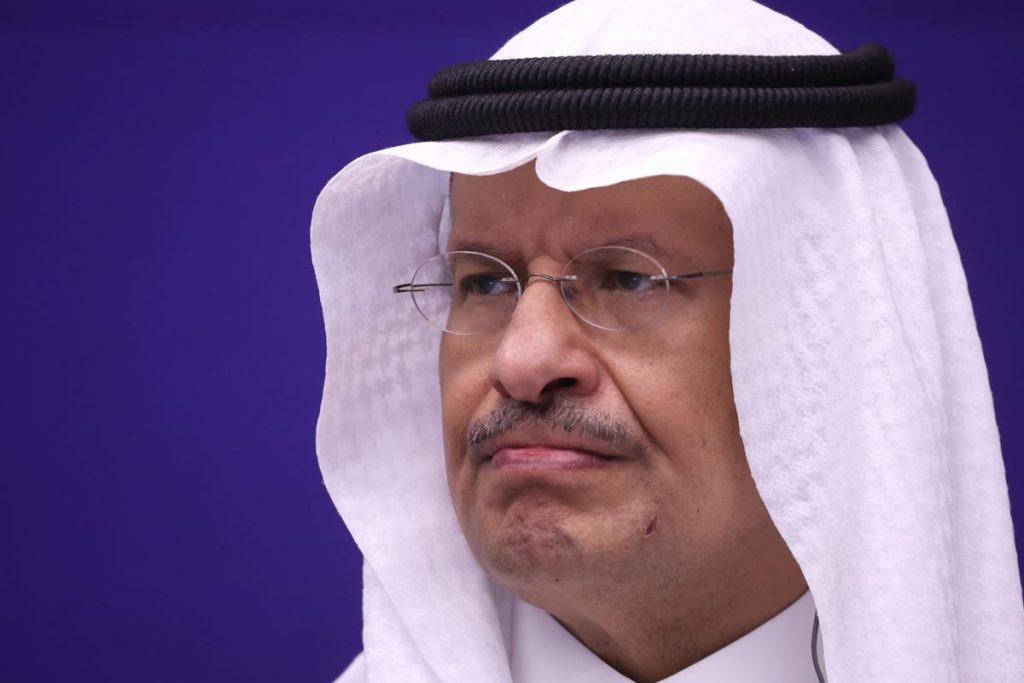The Opec+ group of oil-producing nations has agreed to cut output by 2m barrels per day next month.
The steep cut in oil production will curb supply in a market that is already seeing the strain and the US called the move “short-sighted” and an indication that Opec+ is “aligning with Russia”.
Opec+ members, however, will be hoping the reduced supply will lead to a surge in oil prices, which have dropped to around the $90 mark following a recent-high of $120 just three months ago.
Brent crude rose 2.2 percent to $93.81 a barrel following the announcement.
US West Texas Intermediate (WTI) crude rose $1.78, or 2.1 percent, to $88.30 a barrel. It reached $88.42 per barrel during the session, the highest since Sept. 15.
The news came following the first face-to-face meeting of Opec+ group members in two years as representatives gathered in Vienna.
The US lobbied against the decision as it looks to deny Russia of crucial oil revenues.
“The President is disappointed by the short-sighted decision by Opec+ to cut production quotas while the global economy is dealing with the continued negative impact Putin’s invasion of Ukraine,” the White House said.
Biden’s US, in particular, was hoping to prevent a hike in gasoline prices at the pump as mid-term congressional elections come in early November.
Despite the objections from the US, Opec+ members were bullish about the group’s importance on the world stage.
Saudi Energy Minister Abdulaziz bin Salman stressed the group’s stated role as a guardian of stable energy markets.
He told reporters: “We are here to stay as a moderating force, to bring about stability.”

Opec+ highlights uncertainty in oil market
Opec+ said the decision had been made in “light of the uncertainty that surrounds the global economic and oil market outlooks, and the need to enhance the long-term guidance for the oil market, and in line with the successful approach of being proactive and pre-emptive”.
Speaking aboard Air Force One, the White House press secretary said the production cut by Opec+ indicates the oil cartel has sided with Russia in the global standoff over energy price and supply.
“It’s clear that Opec+ is aligning with Russia with today’s announcement,” Karine Jean-Pierre said as president Joe Biden made a trip to Florida.
Although Russia is not a member of Opec, the press secretary noted the link between the production cut and the dire energy situation facing many countries globally due to the ripple effects of Moscow’s invasion of Ukraine.
“We’re dealing with a time where… the global markets or the global economy is responding to Putin’s war,” Jean-Pierre said.
“And so by making this decision, it is going to have an effect on low and middle… income countries.”
Opec members also announced the decision to extend their declaration of co-operation until at least December 31, 2023 and to adjust the frequency of monthly meetings to every two months for the Joint Ministerial Monitoring Committee (JMMC).

Oil production in Saudi Arabia
Just six weeks ago it was reported that Saudi Arabia’s average oil production increased by 20 percent from the beginning of 2022 until the end of August.
“The increase is due to the efforts by the Opec+ agreement to support market stability and the performance efficiency for the benefit of the participants in the market and the petroleum industry,” the Saudi Press Agency (SPA) said.
Daily barrels reached around 10.5 million barrels in the Kingdom, higher by 1.8 million daily barrels compared to the same period last year.
Wednesday’s production cuts of 2 million barrels per day are based on existing baseline figures, which means the cuts would be less deep because Opec+ fell about 3.6 million barrels per day short of its output target in August.








